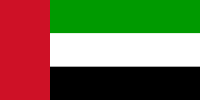This weekend I stumbled upon an interesting (and somewhat alarming) article, dated 24 April 2011, in the online edition of the Brazilian newspaper "O Globo". The article was titled "Com possibilidade remota de acordo, Rodada de Doha está em xeque".
Translated into English the title would read something like: "Because of the remote possibility of an agreement, the Doha Round is now in check"
According to the article, which was quoting
Brazil's Ambassador to the WTO, "the situation is serious".
Further, and referring to people who are closely following the negotiations, the article says that the negotiators are working on four scenarios:
1) continuity,
2) change of approach, i.e. keep trying, but with some adjustments,
3) "uncontrolled landing", featuring a dramatic end to the Round Doha, and
4) "organised ending", i.e. a way to suspend the process, without hurting the credibility of the multilateral trading system.
On the last scenario the article mentions that "It is the first time that the fourth hypothesis comes from the backstage and reaches the ears of other country Members of the organisation".
And last but least the article concludes by pointing the Mr Lamy who "concerned about the poor prospects about an agreement […] will start in the next month, a series of bilateral meetings.
Here is the link to the article:
The website of the Brazilian Ministry for External Relations (Itamaraty) has included this article in the Ministry's press review:
The situation appears indeed to be so serious that Mr Lamy, in the press conference following a panel discussion in the "Brussels Forum" of the German Marshall Fund on Saturday 26 March 2011, said that he would not answer questions related to the Doha round as he had a a session with the whole membership on Tuesday (29 March 2011) and he needed to talk to the WTO Membership before talking to journalists.
Here is the transcript of the link to the transcript of the press conference:




